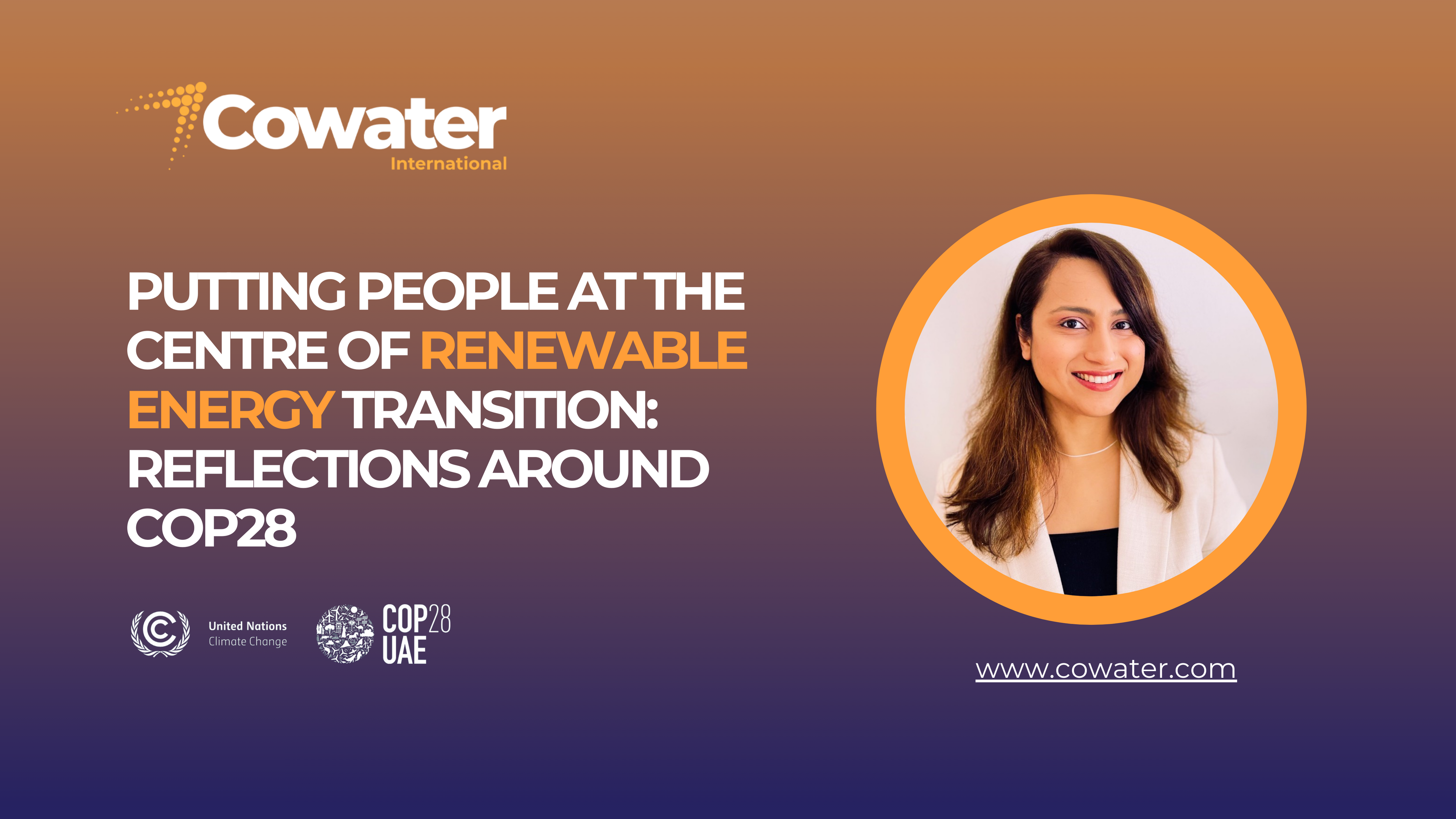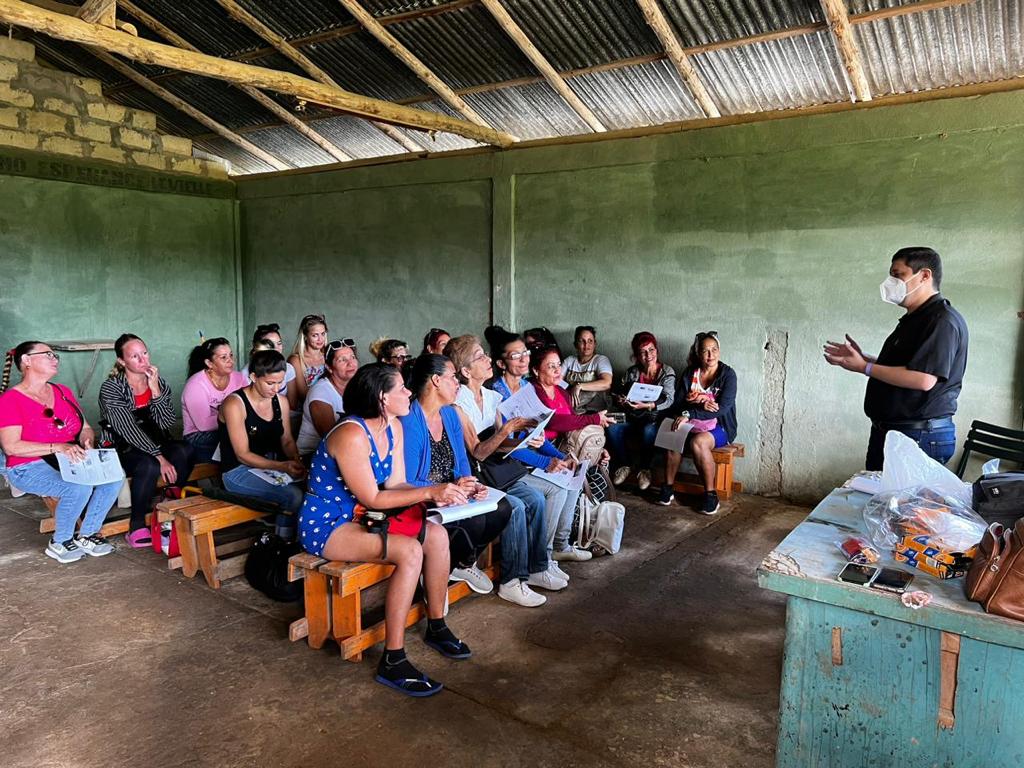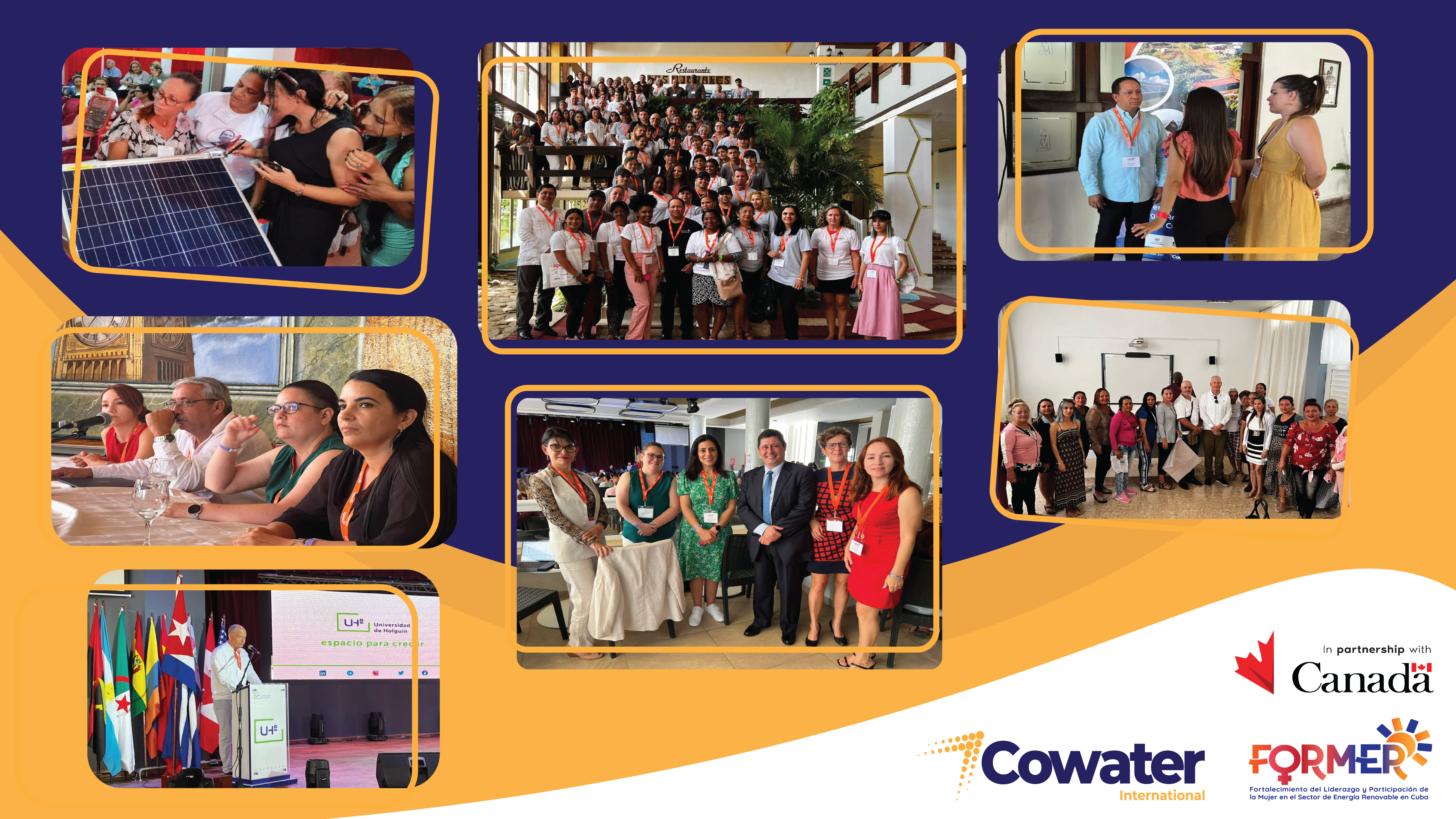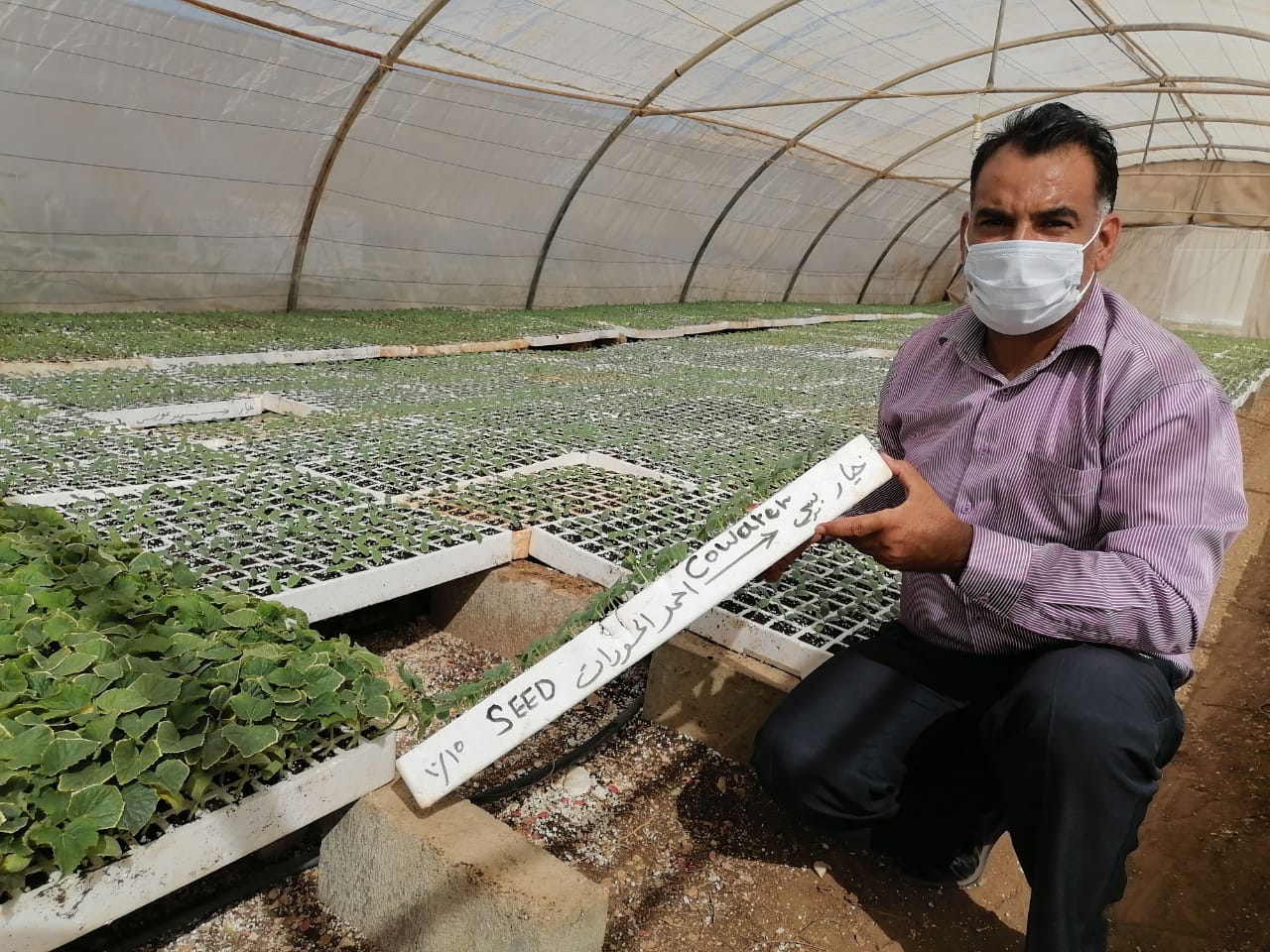
Supporting the champions of a low-carbon economy in Jordan
The Sustainable Energy and Economic Development Project in Jordan (SEED) is a $22 million CAD, 5-year initiative funded by Global Affairs Canada and the Jordan Renewable Energy and Energy Efficiency Fund, and implemented by Cowater International. SEED aims to promote sustainable and inclusive economic growth in the Jordan Valley and Ajloun regions through the uptake of low-carbon renewable energy technologies.
For Ahmad al Hawwarat, a Jordanian vegetable grower from Deir Alla, the choice of transitioning to renewable energy solutions was the product of technical and financial support received through SEED. Ahmad manages 15 greenhouses where he grows primarily baby cucumbers and tomatoes. One of the largest costs that he incurred monthly was his electricity bill, which averaged 100-120 Jordanian dinars ($180-210 CAD). Moreover, Ahmad was facing the challenge that some of his water pumps, which are powered by a photovoltaic system, were off grid, allowing him to pump water only during the day. The costs of electricity were too high to pump water overnight, which had a negative impact on his yields as plants were not adequately watered during the frequent hot nights in Deir Alla.
 Ahmad al Hawwarat, a beneficiary of SEED project, holding cucumbers in his greenhouse
Ahmad al Hawwarat, a beneficiary of SEED project, holding cucumbers in his greenhouse
Ahmad heard about the SEED project from a friend and signed up to benefit from a wide range of training opportunities that covered energy efficiency and renewable energy (EE & RE) technologies, sustainable business planning, financial planning, and marketing skills development. He subsequently turned to SEED for financial help and benefited from funding under one of the project’s components which supports investments in innovative business ideas.
His business idea was to grow plants using hydroponics technology integrated with renewable energy solutions. This approach allowed Ahmad to double his yields and significantly reduce his electricity costs. SEED’s integrated approach to supporting project beneficiaries translated into guiding Ahmad through the process of designing and refining his business idea. As a next step, the project supported Ahmad and a shortlist of innovators through a comprehensive training program to ensure that they can succeed in turning their ideas into viable business opportunities. Following a competitive process, Ahmad and three other finalists were selected to receive funding to bring their ideas to life.

SEED financed renewable energy investments and supported the adoption of best agricultural practices
Ahmad benefited from a gamut of equipment that was needed to ensure that he could fully take advantage of renewable energy investments and deploy best agricultural practices on his farm. SEED provided a 10 kVA inverter, circuit breakers, earth leakage devices, a new water pump, two water tanks and other agricultural supplies. The inverter was a key component to maximize the efficiency of the photovoltaic system on Ahmad’s farm, allow him to pump water during the night and consequently boost his yields. As a result of project funds, Ahmad managed to reduce his monthly electricity bill to 2 Jordanian dinars. This massive cost saving helped him reinvest his money into his greenhouse and generate extra income for the family.

SEED financed renewable energy investments and supported the adoption of best agricultural practices
Transitioning to renewable energy has had a wide range of environmental and economic benefits. First, Ahmad managed to reduce water consumption by over 60 percent. Second, the use of the inverter and photovoltaic system is contributing to an annual reduction in CO2 emissions by 10.2 tons. Third, the concurrent adoption of best agricultural practices is helping Ahmad reduce the amount of fertilizer used and has had a positive impact on soil quality. Fourth, due to increases in productivity, Ahmad has been able to create two new jobs at harvest time and stimulated job creation and higher incomes in his community. He is selling some of his cucumbers to community-based organizations involving local women who pickle and sell them in the local market. Ahmad has also been successful in selling part of his produce to local malls. Due to improvements in agricultural techniques and the use of renewable energy, Ahmad’s income from a greenhouse has increased from 500 to 2000 Jordanian dinars.
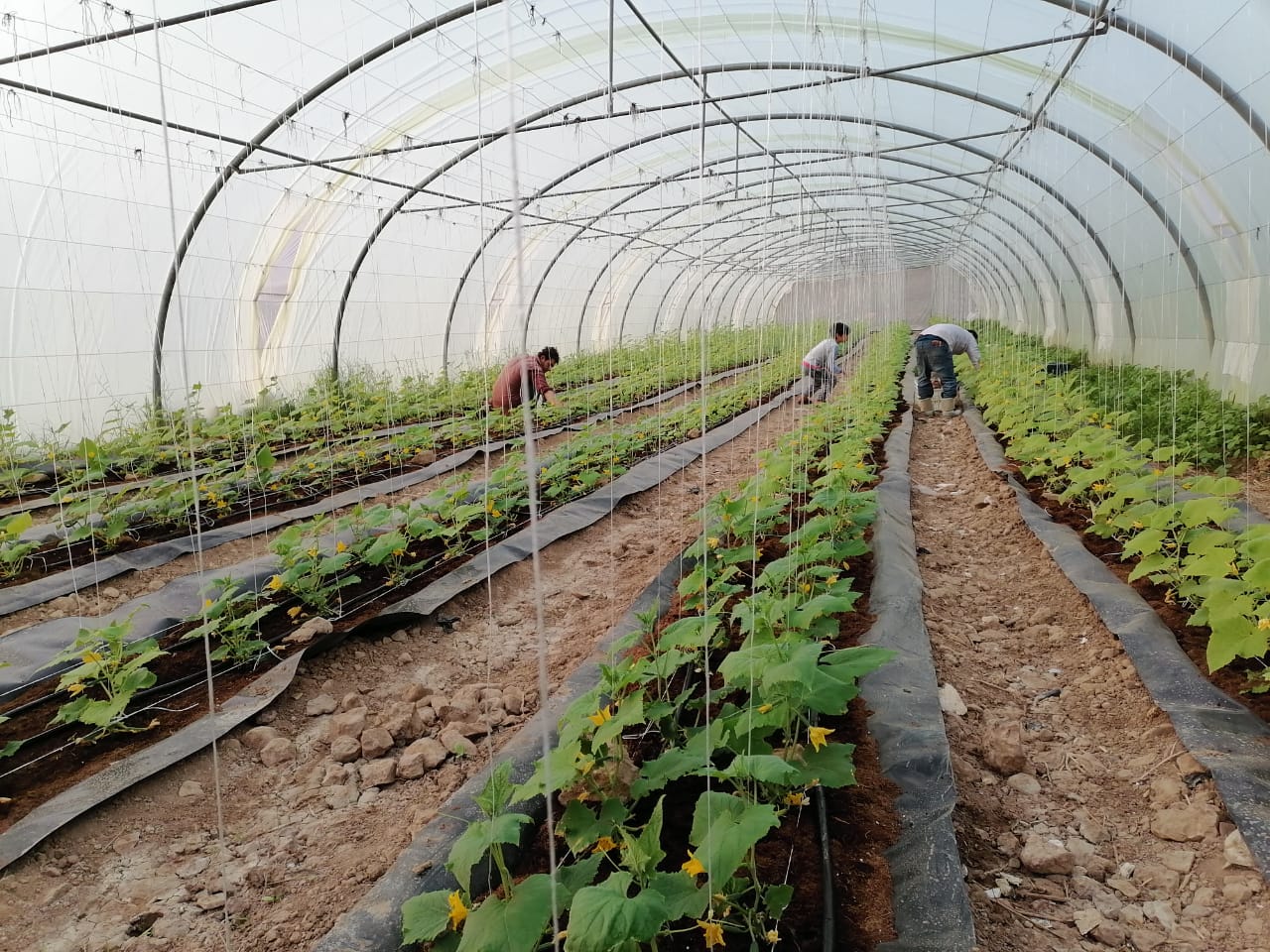
Improvements in agricultural productivity contributed to job creation
“The greatest change happened to me when I was supported by the SEED project team to develop my innovative idea. I am planning to convert and develop my other traditional greenhouses to hydroponic cultivation in the future. My idea increases production, saves water, eliminates soil diseases, and controls pests that affect plants. I can grow other varieties of plants such as cherry tomatoes. I thank SEED for giving me the opportunity to develop my project and make it successful. SEED taught me that there is no limit and that I should always look forward to more growth.”, proudly highlights Ahmad al Hawwarat.
Through supporting investments in renewable energy, SEED is contributing to an overall reduction of approximately 6.3 thousand tons in CO2 emissions. The project has helped raise awareness about renewable energy for more than 77 thousand people and has created over 300 skilled jobs in Jordan’s EE & RE sector. Moreover, over 27 thousand households and 13 schools and health centres benefited from EE and RE investments, reducing electricity costs for people and institutions and protecting our environment.
Related Content
Putting people at the centre of renewable energy transition: reflections around COP28
Author: Harshita Bisht, Project Manager, Environment and Climate Change, Cowater International Ramping up ambition at COP 28 for global emission reduction As nations gather for COP28 UN Climate Conference in […]
Enhancing Women’s Leadership and Participation in Cuba’s Renewable Energy Sector
The sixth work mission of the FORMER project, funded by the Government of Canada through Global Affairs Canada, has successfully concluded. The mission lasted from October 29 to November 11, […]
FORMER Cuba Project hosts the Second International Symposium on Gender and Renewable Energy in Holguin
Cowater International-led “Enhancing Women’s Leadership and Participation in Cuba’s Renewable Energy Sector” (FORMER-Cuba) Project, an initiative of the governments of Canada and Cuba, is hosting the Second International Symposium on […]




